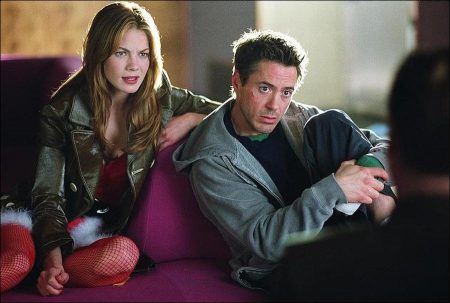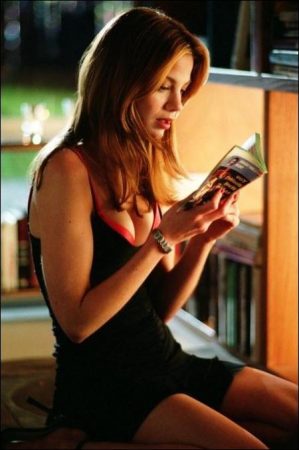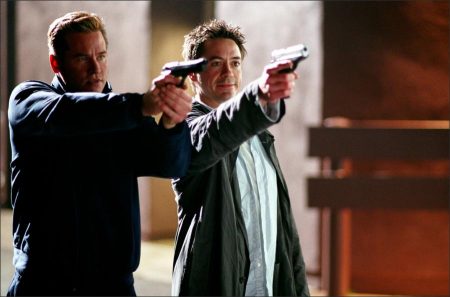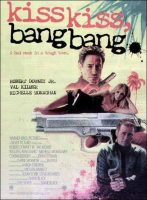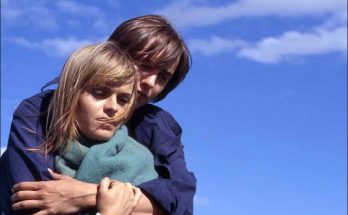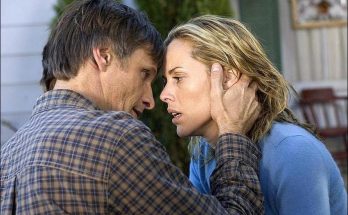Kiss Kiss, Bang Bang Movie Trailer. There had never been a story like it before. In 1986, a 23 year-old recent UCLA graduate named Shane Black finished writing a draft of his first screenplay. Within a week, producer Joel Silver optioned it, and together with director Richard Donner they ushered in a new era of filmmaking with Lethal Weapon, a character-driven hybrid of comedy and the adrenaline-fueled action genre emerging under the auspices of Silver, producer of the seminal action films Commando and Predator.
Starring Mel Gibson and Danny Glover as mismatched cops battling a drug-smuggling ring, Lethal Weapon established Black’s his flair for creating characters as explosive as his frenetic action sequences and dialogue to match. Its blockbuster success spawned three Lethal Weapon sequels, influenced a generation of filmmakers and set the bar for countless imitations.
“Shane has a unique voice that comes through in everything he writes,” says Silver, who helped to reinvent action filmmking in 1988 with Die Hard and again in 1999 as the producer of The Matrix. “Whether he’s honoring the conventions of the genre or deliberately defying them, he always brands his films with original characters, innovative action and memorable dialogue. His writing style is as entertaining as the movies that wind up on the screen.”
“The films that interest me tend to be those that combine two elements in a way that we haven’t seen before,” says Black, whose Lethal Weapon screenplay paired a a veteran detective with a suicidal younger cop whose unorthodox behavior sets off a surprising mix of comedy and suspense.
Black first visited the detective myth in Silver’s 1991 production The Last Boy Scout, a buddy / action picture starring Bruce Willis as a down-and-out private eye looking for redemption when he teams up with a disgraced ex-quarterback, played by Damon Wayans, to investigate corruption in the high-stakes world of professional football. His forceful 1996 script, The Long Kiss Goodnight, features a fourth-rate P.I. played by Samuel L. Jackson who discovers that Geena Davis’ amnesiac schoolteacher is actually a deadly secret agent working to overthrow the government.
Black’s drive to explore the action / crime milieu was greatly influenced by his boyhood obsession with detective novels – cheap paperbacks populated with hard boiled private eyes and dames in distress; risque stories where two seemingly unrelated cases intersect in a confluence of scandal and murder, and bittersweet justice always prevails.
“I read The Hardy Boys and The Three Investigators, the suspense fiction intended for kids, but my childhood heroes tended to be in the adult section of the library,” Black says. “I loved detective stories, and I devoured them. I’ve literally read hundreds of them. I wasn’t allowed to read them when I was a kid because they were racy, so I would sneak them. I’d save my lunch money – I wouldn’t eat for three days so I could buy the new Mike Shayne book, or the new Shell Scott, or Chester Drum. The racy scenes were great but I loved the mystery. There was a real kind of masculine, rough-hewn rhythm to those caper novels, and I acquired an even deeper sense of them that was emotional and powerful. If I hadn’t read those stories, I wouldn’t be writing movies.
“My fascination with the myth of the private eye and my obsession with those pulp novels needed an outlet when I became an adult,” he elaborates. “To some extent I explored it in Lethal Weapon and The Last Boy Scout. But I’d never attempted a private eye piece that summed up all the different things I felt about those books and always wanted to try. This film pays homage to the detective stories I read when I was a kid.”
The setting for Black’s Kiss Kiss, Bang Bang is a tarnished promised land called contemporary Los Angeles, a sprawling shark tank where damaged but decent characters collide with destiny much in the same way the fated fiction unfolds in the pages of Black’s beloved private eye novels. Swimming with the sharks are petty criminal Harry Lockhart and sometime actress Harmony Faith Lane, recently reunited childhood friends who share a love of the long-forgotten pulp hero Jonny Gossamer, a tough guy private eye in the tradition of Black’s fictional heroes.
Though the fictional Jonny Gossamer only briefly appears in Kiss Kiss, Bang Bang in a scene from a movie playing within the story, he is an important point of reference for the characters and his presence is felt throughout the film.
“There’s a sense of destiny about Jonny Gossamer, a sense of spitting in the eye of death,” says Black of his fictional P.I. “He’s an obscure, trashy dime-store paperback phenomenon who has come to represent so much more than that in the eyes of these characters. He’s really a metaphor for a kind of youthful enthusiasm, a belief in something beyond where you are, a belief in the hero that you can someday be.”
As the story unfolds and Black’s characters seize the opportunity to rise above their past imperfections and maybe make good for once, their reality begins to take on the qualities of Jonny Gossamer’s fictional world, where randomness gives way to fate, truth is stranger than fiction, and everyone has the chance to be great for one shining moment.
“It’s important to believe in and savor something that’s shopworn and soiled and which most people would dismiss as not being literature,” Black believes. “There have been very few contemporary interpretations of the great L.A. private eye tradition; what I strived for was a movie that walks the line between something that takes itself seriously enough to be suspenseful but is playful enough to be entertaining and fresh.”
After honing this sly blend of his signature buddy movie and classic film noir, Black sent his Kiss Kiss, Bang Bang screenplay to Silver. “It seemed logical to do this project with Joel because I thought that more than anyone I’ve worked with in the past, he would be drawn to it; he would understand the material, not just in general, but in the way that I specifically intended,” Black says.
“I thought Shane’s script was funny, romantic, suspenseful and full of fresh, unexpected moments,” Silver says. “It’s a sophisticated blend of genres and ideas. It pays homage to noir films and the pulp detective stories, but the tone is utterly contemporary. The passion he has for the private eye tradition really comes through. It might be the most romantic story Shane’s ever written. It’s definitely his most original.”
“With Kiss Kiss, Bang Bang, Shane does for the private eye genre what he did for the action movie,” says executive producer Susan Levin, who also serves as Silver Pictures’ Executive Vice President of Production. “He brings together original, engaging characters in a story infused with clever dialogue and a rapid-fire tempo that calls back to classic screwball comedies. It was one of the best pieces of material I’d read in some time. With great material, you will attract great actors.”
Kiss Kiss, Bang Bang (2005)
Directed by: Shane Black
Starring: Robert Downey Jr., Val Kilmer, Michelle Monaghan, Joel Michaely, Ariel Winter, Shannyn Sossamon, Angela Lindvall, Martha Hackett, Nancy Fish, Tanja Reichert, Stephanie Pearson
Screenplay by: Shane Black
Production Design by: Aaron Osborne
Cinematography by: Michael Barrett
Film Editing by: Jim Page
Costume Design by: Christopher J. Kristoff
Set Decoration by: Jeannie Gunn, Mary-Margaret Stratton
Art Direction by: Erin Cochran
Music by: John Ottman
MPAA Rating: R for language, violence and sexuality / nudity.
Distributed by: Warner Bros. Pictures
Release Date: November 11, 2005
Views: 64
